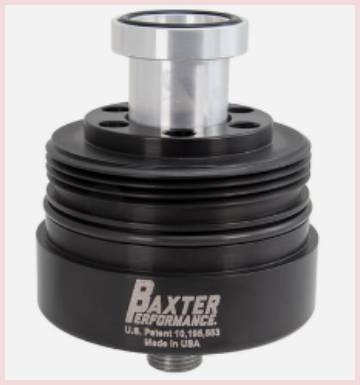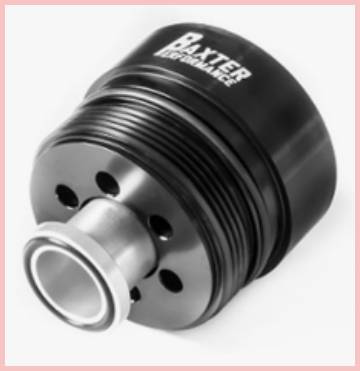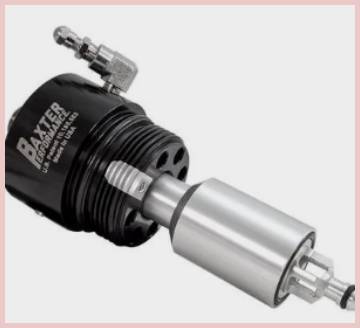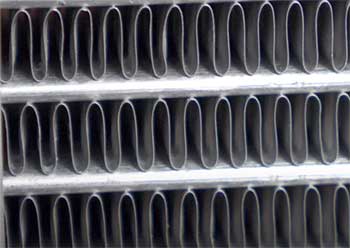If you’re thinking about upgrading your vehicle’s oil filtration system with a Baxter Performance Oil Filter Adapter, I strongly suggest you read this review first.
The promise of better filtration and faster oil pressure may sound appealing, but after using it myself and researching customer feedback, there are some important issues you need to know about before making that purchase.
My Personal Experience Using the Baxter Performance Oil Filter Adapter

I initially bought the Baxter Performance Oil Filter Adapter after hearing about its unique bypass system that supposedly delivers quicker oil pressure during cold starts.
I drive a high-mileage Subaru that I rely on for long trips and off-road weekends, so the idea of reducing engine wear was appealing.
The installation wasn’t overly complicated, although I wouldn’t call it beginner-friendly. If you’re not mechanically inclined, you’ll probably need a professional to install it properly.
The product feels solid—machined aluminum with a nice anodized finish—and it came with decent installation instructions.
After fitting it, I noticed a change in oil pressure behavior. Cold starts felt a bit smoother and the oil light went off a tad faster.
But that minor improvement came with some frustrations. First off, I started experiencing persistent oil leaks around the adapter.
I reinstalled it, used better thread sealant, and torqued it exactly as suggested. Still, the seepage continued.
I later discovered many others had similar problems—even mechanics on forums complained about poor sealing and compatibility issues.
Then came the dreaded check engine light. After a scan, I found that my oil pressure sensor was reading inconsistencies. Apparently, the adapter was interfering with the sensor’s readings. I double-checked all connections and fittings, but the issue lingered.
Performance-wise, sure, it works to an extent. But at what cost? The headaches and worry about leaks overshadowed the small gain in oil pressure speed.
Honestly, I expected more for the price. It felt like I was fixing something that wasn’t broken in the first place.
The final straw? Customer support. When I reached out to Baxter, responses were either delayed or vague. One email exchange stretched across two weeks.
Eventually, I decided to remove the adapter and return to my stock configuration. Since then, everything’s gone back to normal—no leaks, no sensor problems, and peace of mind.
Do You Really Need an Oil Filter Adapter?
Before you spend money on a product like the Baxter Performance Oil Filter Adapter, ask yourself what problem you’re trying to solve.
Is your engine experiencing delayed oil pressure during cold starts? Are you running high-performance mods that strain the stock oil system? If not, an adapter like this might just be an expensive band-aid for a problem you don’t have.
For most daily drivers and even moderately upgraded cars, a quality oil filter and timely oil changes will do more for engine longevity than an aftermarket adapter ever could.
It’s easy to get pulled in by marketing claims, but unless you’re solving a very specific issue, sticking with your OEM setup is often the smarter route.
Sometimes, “upgrading” can introduce new variables, and in this case, it’s just not worth the risk.
Maintenance Tips for Oil Filter Adapters

- Check for leaks regularly: Once installed, inspect the area around the adapter for any signs of oil leakage every few days during the first few weeks.
- Use the right sealant: Thread sealant makes a huge difference. Don’t rely on Teflon tape—use a high-temp oil-resistant sealant that’s rated for engine parts.
- Monitor your oil pressure: If your dash light flickers or your gauge acts weird, there might be an issue with how the adapter is affecting the sensor. Address this early to avoid engine damage.
- Torque properly: Over-tightening can deform seals or damage threads. Use a torque wrench and follow Baxter’s specs exactly. If you overdo it, you might make the leak worse.
- Stick to quality filters: If you’re using this adapter to install a better filter, make sure you pick one with a solid bypass valve and filtration efficiency. Don’t pair it with a cheap, no-name product.
- Clean the threads before installation: Dirt and oil can prevent a proper seal. Always clean both the adapter and the engine’s mating surface thoroughly before installation.
- Replace O-rings when reinstalling: Don’t reuse O-rings if you remove the adapter for any reason. Fresh O-rings ensure a better seal and minimize leaks.
- Follow oil change intervals strictly: The adapter doesn’t mean you can stretch oil changes. Stick to your vehicle’s recommended intervals and inspect the adapter and filter each time.
- Avoid off-brand modifications: Adding extra fittings or DIY mods to the adapter can make problems worse. Keep it as close to the original setup as possible.
- Listen to your engine: If you hear knocking or ticking sounds post-installation, it might be related to oil flow. Don’t ignore it—revert to stock if needed.
Pros and Cons: The Honest Breakdown

Pros:
- Solid construction: The aluminum body and anodized coating look and feel premium.
- Faster oil pressure: Cold starts do seem a bit smoother, especially on older engines.
- Reusable filter support: Allows use of higher-end filters that improve filtration performance.
- Improved oil flow dynamics: The design focuses on eliminating drain-back issues, which helps prevent dry starts.
Cons:
- Oil leaks: This is a common issue for many users and isn’t always fixed with reinstallation or better sealants.
- Sensor interference: Multiple reports, including my own, note false readings or error codes due to how the adapter interacts with the pressure sensor.
- Fitment issues: Not all vehicle models work well with this adapter despite the brand’s compatibility claims.
- High price point: For what it offers, the cost is on the steep side—especially when considering the added problems.
- Poor customer support: Users often report unhelpful or delayed responses when issues arise.
- No real longevity proof: While the design seems smart, there isn’t enough long-term data to justify its value over traditional systems.
Baxter Performance Vs. Other Brands
- Baxter Performance Vs. Mishimoto

Mishimoto is a well-known name in the performance parts market, and their oil filter sandwich plates offer a more reliable, leak-resistant experience.
Unlike Baxter’s adapter, Mishimoto’s units have better O-ring seals and less sensor interference.
Plus, Mishimoto’s customer service is much more responsive. While both aim to improve oil management, Mishimoto’s track record is cleaner and more trusted across various vehicle platforms.
- Baxter Performance Vs. K&N Performance Gold
K&N’s oil filter system is simple, affordable, and delivers consistent results without requiring an adapter.
The filters themselves are built with high-flow media and come with a built-in pressure relief valve.
With Baxter, you’re spending more and getting inconsistent results. K&N sticks to what works and doesn’t overcomplicate oil filtration.
If you want reliability and ease of use, K&N wins hands down in this comparison.
- Baxter Performance Vs. Derale
Derale’s oil filter relocation kits and adapters are designed with practical use in mind.
They come with robust fittings and clearer instructions, and most importantly, fewer compatibility complaints.
Derale doesn’t try to reinvent oil filtration but enhances accessibility for vehicles with tight engine bays.
While Baxter promotes performance enhancements, Derale focuses on usability and durability—two areas where Baxter falls short.
- Baxter Performance Vs. Perrin
Perrin is another name often associated with Subaru mods, and their components tend to match factory specs closely.
While they don’t offer an oil filter adapter with the same goals as Baxter, the Perrin parts that do exist are known for their OEM-like fitment and reliability.
Baxter’s adapter feels more experimental in comparison, with too many variables that can go wrong. Perrin users generally report fewer installation headaches.
- Baxter Performance Vs. Moroso
Moroso’s oil adapters and relocation kits are designed for high-performance builds and track cars.
Their products undergo strict quality control and have proven themselves in racing conditions.
Baxter claims performance advantages, but Moroso delivers them without the issues. Plus, Moroso offers better customization options and greater compatibility.
For serious engine builds, Moroso is the smarter, safer investment.
Also Read: Comparison Of Ops-Core AMP Vs. Peltor Headset
Frequently Asked Questions (FAQs)
Yes, performance oil filters can improve oil flow and filtration efficiency. However, the benefits are more noticeable in high-performance or heavily-used engines. For daily drivers, the difference is often minimal unless you’re pushing the vehicle hard.
An oil filter adapter changes how and where the oil filter mounts. It can allow for relocation, support aftermarket filters, or improve oil flow characteristics. Some also offer added features like ports for sensors or faster oil pressure at startup.
Brands like K&N, Mobil 1, and WIX consistently get high marks for build quality, filtration ability, and oil flow. They also fit well without requiring special adapters, which keeps the system simple and reliable.
Not always. Some pricier filters do use better materials and more advanced filtration media, but that doesn’t guarantee better performance. The best filter for your car depends on your driving style, oil type, and engine condition.
Final Thoughts
I went into this expecting a clever upgrade for my car’s oil system, but what I got was more frustration than function.
The Baxter Performance Oil Filter Adapter tries to solve a problem that many vehicles don’t actually have, and in doing so, it introduces new problems of its own.
If you’re an enthusiast who loves tinkering, it might be worth experimenting with—but for most drivers, the risks just don’t justify the rewards.
Spend your money on a quality oil filter and regular maintenance instead. Sometimes, simple is better.

